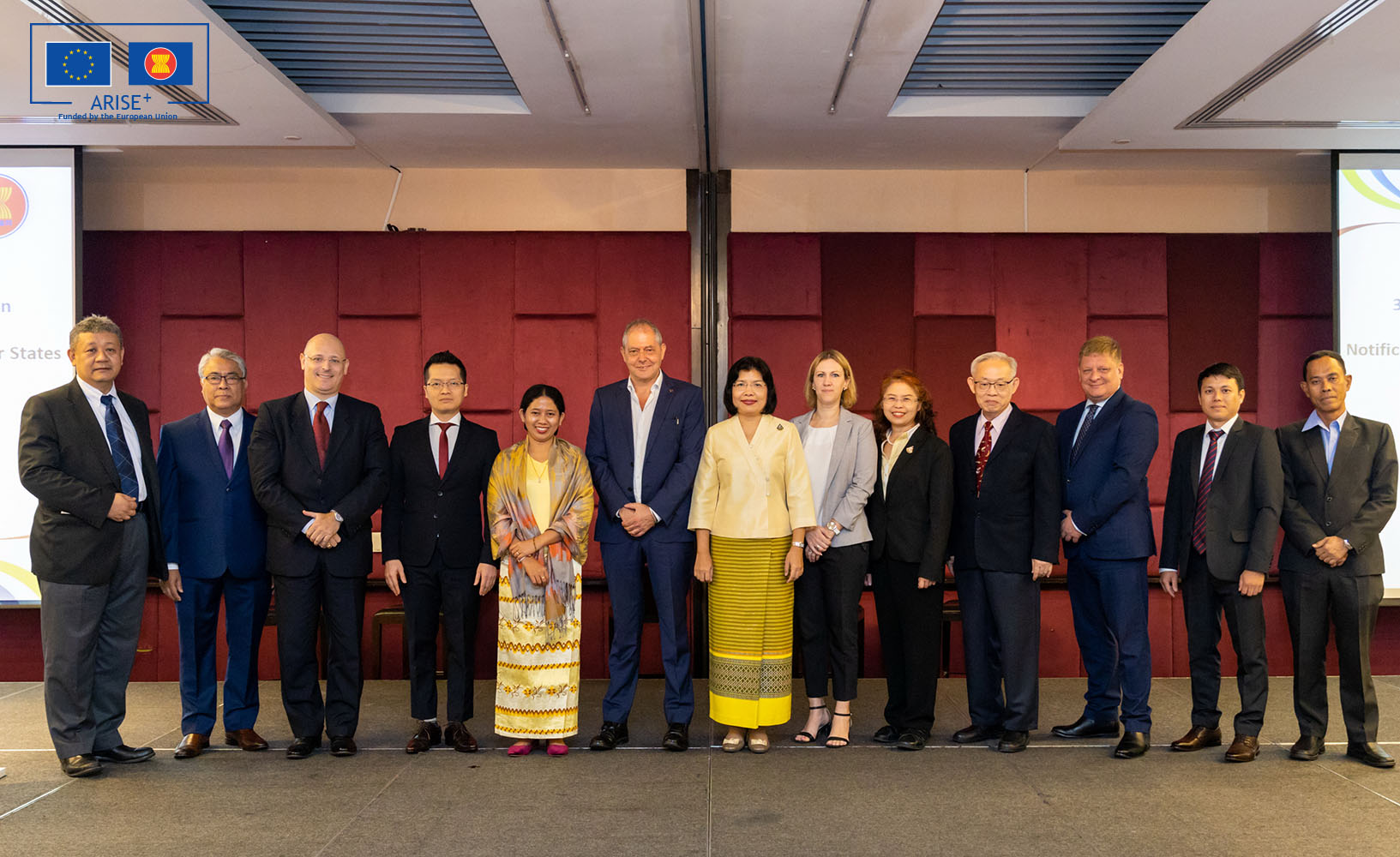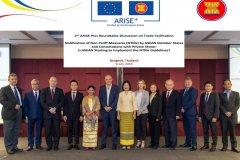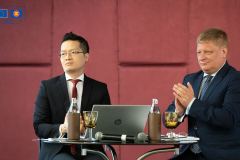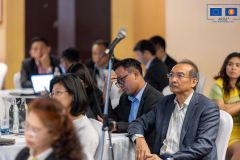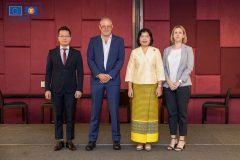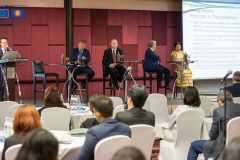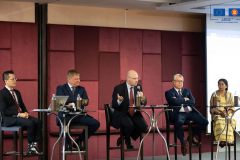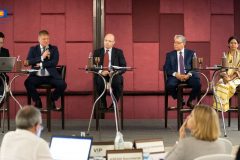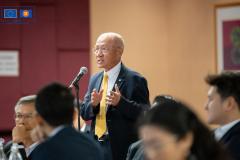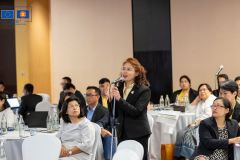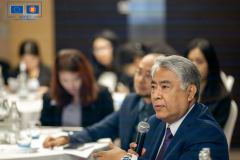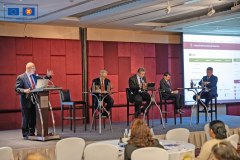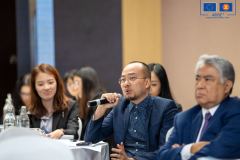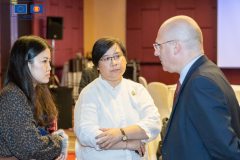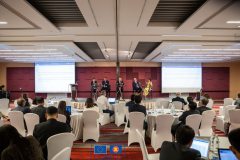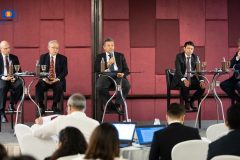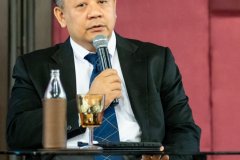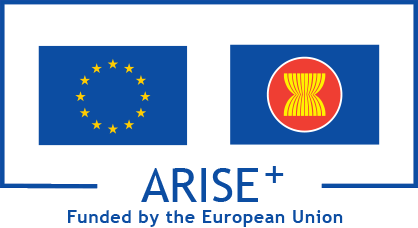The Third ARISE Plus Roundtable Discussion on Trade Facilitation
Notification of NTMs by AMSs and Consultations with Private Sector:
Is ASEAN Starting to Implement the NTMs Guidelines?
The 3rd Roundtable Discussion was held on 9 July 2019, back-to-back with the 15th ATFJCC Meeting on 10-11 July 2019, in Bangkok, Thailand. Participants of the 3rd Roundtable Discussion included the relevant government officials and private sector representatives, such as business or trade associations, chambers of commerce, business councils, and business federations.
Background and Context of the ASEAN NTMs Guidelines
The ASEAN NTMs Guidelines, which provide guidance for the implementation of ASEAN commitments on addressing nontariff measures in relation to trade in goods, particularly those under the ASEAN Trade in Goods Agreement (ATIGA), have been endorsed by the AEM32nd ASEAN Free Trade Area (AFTA) Council in July 2018. The NTMs Guidelines are to be implemented by ASEAN Member States (AMSs) and the relevant ASEAN Sectoral Bodies, and shall be reviewed and monitored by the AFTA Council through the ASEAN Trade Facilitation Joint Consultative Committee (ATFJCC), which has been tasked to report to the AEM-33rd AFTA Council Meeting to be held in October 2019.
Objective of the 3rd ARISE Plus Roundtable Discussion on Trade Facilitation
The objective of this 3rd ARISE Plus Roundtable Discussion on Trade Facilitation (3rd Roundtable Discussion) is to bring together ASEAN Institutions and private sector representatives to discuss, in an informal setting, two important issues of relevance to the private sector in ASEAN and intimately related to ASEANs trade facilitation agenda and to the implementation of the NTMs Guidelines: (i) the process of notification by AMSs of new or modified NTMs ahead of their formal adoption (Principle 3 of the NTMs Guidelines: Transparency) and (ii) the consultations with the private sector, both in relation to the notified NTMs (Principle 2 of the NTMs Guidelines: Consultations and Engagement) and to any other issue of relevance vis-a-vis the realization of the ASEAN Economic Community (AEC).
